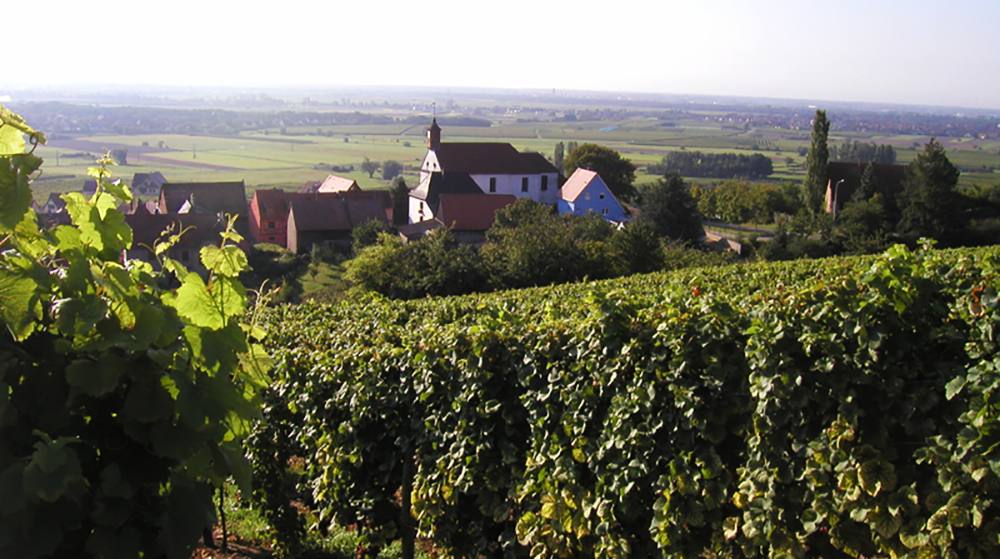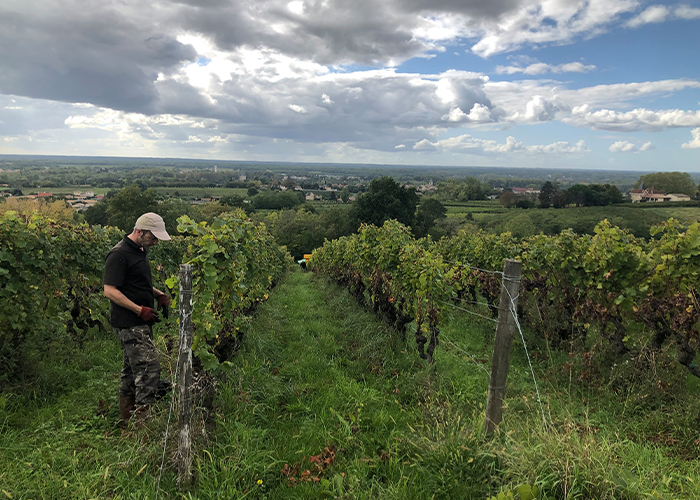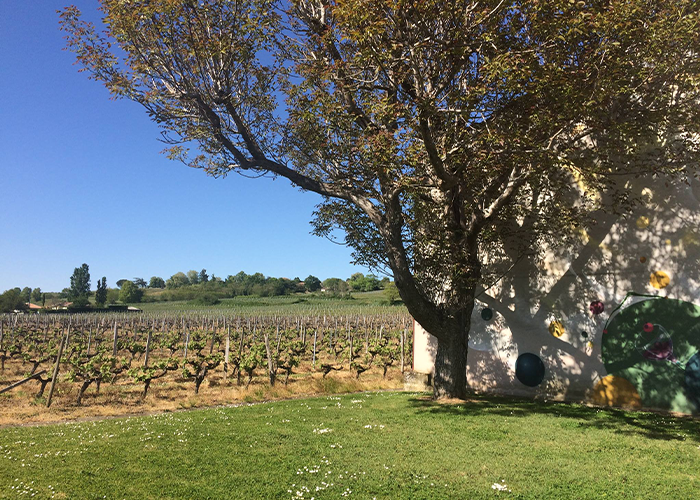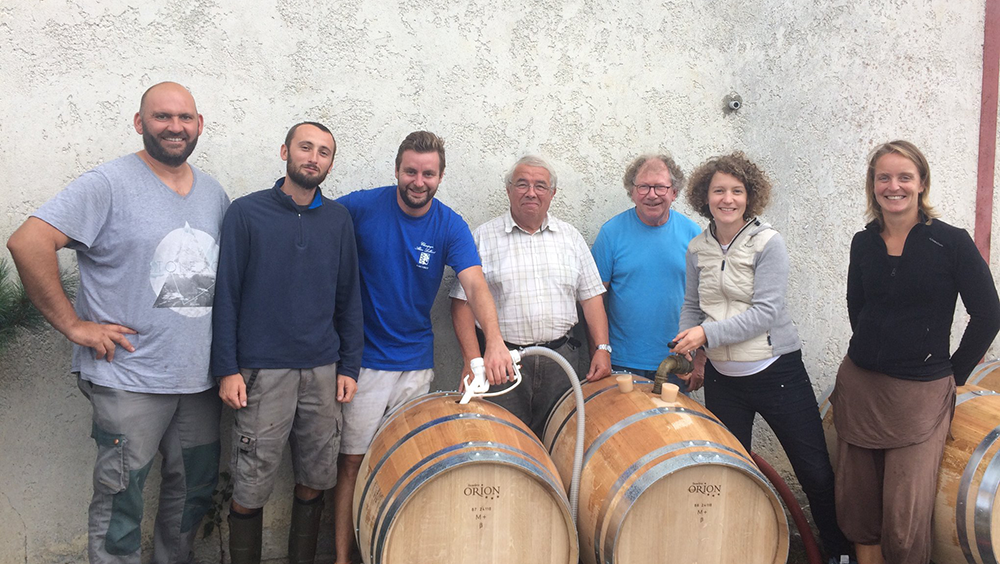Q: Can you explain in your own words the story of the winery or share some details that couldn’t be found on your website?
The winery as it is today had only been as such for the past 30 years. My parents bought a cellar, some plots of vines around and a building which used to be a place to make barrels. So our history is quite recent.
The benefit from that? We have plots in five different villages with each village having its own terroir and sun exposure. It is a bit tricky to work (you need to drive a lot), but the richness that we get out of these five villages is definitely worth it. [Our name] Château Haut-Rian refers to the village where we live—Rions.
Q: Are there any wines that you’d consider more unique?
You have in your portfolio two very special wines:
Sélection Parcellaire Les Acacias: This is a beautiful hill clay on limestone soil with old Sémillon (1970s, 50 years!), and we produce this 100% sémillon, which is completely unusual for Bordeaux on the lemon/citrus/freshness side of Sémillon.
Sélection Parcellaire Saint-Seurin: In the village of Rions, one plot that is very near our cellar, nice slope, southeast exposure, beautiful clay & sandy soils on limestone. We make a red Merlot/Cabernet Sauvignon that is slightly spicy, with soft tannins and a good concentration.
Q: Are all of your wines made from estate-grown fruit? If not can you explain any long term contracts that you may have?
100% ESTATE FRUIT. We never buy grapes; we grow our own grapes. To me, this is very important to understand as we are following some strict rules in the vineyard to be Terra Vitis (sustainable viticulture) certified. It is also a very important aspect for the quality of our wines. We need to know our soils and to know when to pick, how to blend, etc.
Q: Are your wines organic, biodynamic and/or vegan?
Sustainable for 100% of our plots (80 hectares). We are certified for three different programs called Terra Vitis, Haute Valeur Environmental and Bee Friendly. Eleven hectares are certified organic.
Q: What clones are being used at Château Haut-Rian?
We are lucky enough to own very old vines that were planted before clonal selections (meaning massale selection). On one of these plots we are currently doing the work of massale selection to keep the genetic diversity we value so much (these old vines are less sensitive to powder mildew and deliver super nice grapes almost every vintage).
Q: What is your favorite vintage and why?
2018 is my favorite vintage because it was our first vintage where we had this triple certification in the vineyard which was very rewarding. The start of the season was absolutely awful with rain and heavy mildew powder pressure and then on the 1st of July, all of a sudden, the sun started to shine for three months. Unbelievable and easy harvest!
Q: What are the types of soils in your vineyards, and how do they impact your wines?
What is so different in our specific regions is the hilly side of it: having hills allows us to have plots on nice slopes so the water is never stuck, there is good natural drainage. The second thing is that the diversity of soils around here is impressive: sands, clay, loam, gravels. By adapting the plot with the grape variety, you can produce super nice reds and whites.
Q: What trellising systems do you use? Why do you prefer that system?
We have 5,000 vines per hectare (rows of two meters, one meter between each vine). It is a density high enough to get structured and concentrated grapes and low enough to manage costs. (Last harvest the maximum yield allowed in my village was 54HL/ ha meaning 5400 liters produced per plot of 1 hectare.





